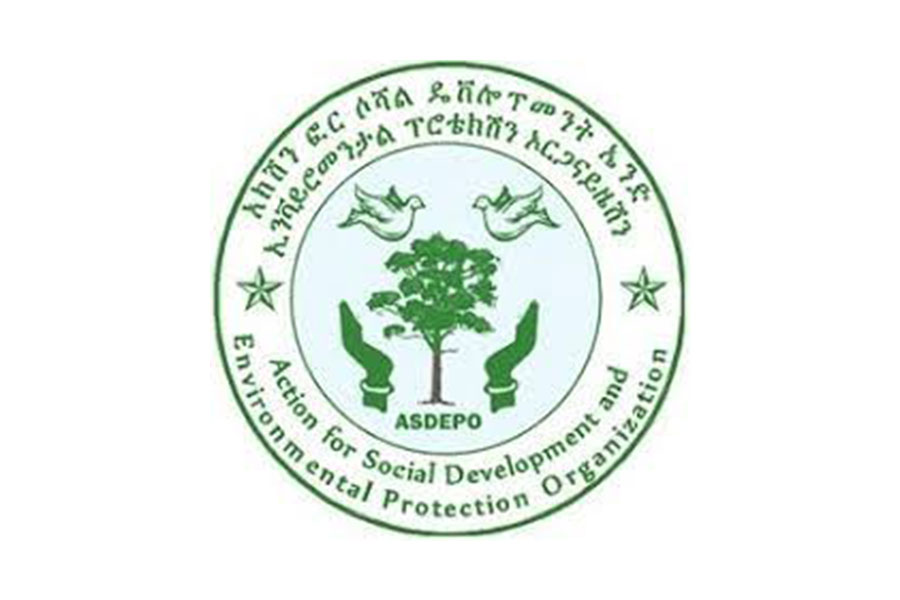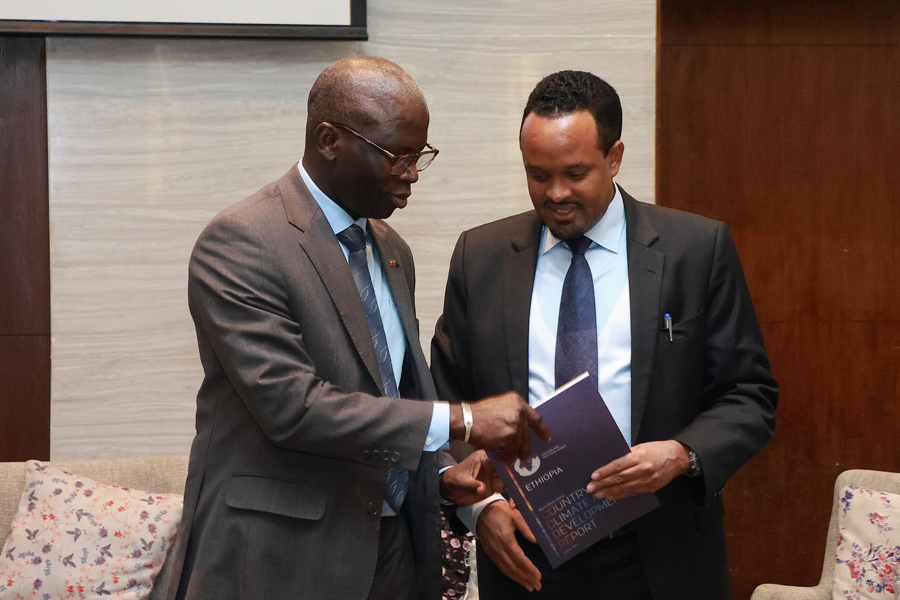
Nov 20 , 2021
By Marjut Falkstedt
If done right, climate-change projects could provide a unique opportunity to invest in women’s potential. By directing financial resources effectively, the world can make significant – and simultaneous – progress in tackling both global warming and gender inequality, writes Marjut Falkstedt, secretary-general of the European Investment Bank (EIB).
Women account for 43pc of the agricultural labour force in developing countries but account for only about seven percent of investment in the sector. Investing more in female farmers could increase agricultural yields by up to 30pc – almost enough to offset the decline in output expected by 2030 because of climate change - according to the Food & Agriculture Organisation (FAO) of the United Nations.
This is just one example of how climate and gender are deeply intertwined. Women’s livelihoods often depend on forests, rivers, lakes, and oceans, and their knowledge of these resources could spearhead conservation efforts. At the same time, women suffer more than men from climate change, because they tend to be poorer and often lack the financial wherewithal to recover from flooding, heat waves, or wildfires.
But even as climate change profoundly affects women’s lives, high-level climate discussions or policy initiatives rarely consider their conditions, needs, and views. This is both unjust and short-sighted. Climate projects need women’s input to succeed, given the huge role they play as consumers, community leaders, workers, and entrepreneurs.
We already know that investing in women is good business. Enterprises in which women occupy at least half of the leadership positions have higher sales growth, are more profitable and generate a better return on their assets. And because women make roughly 80pc of consumer buying decisions, firms with stronger female representation often produce better-selling products.
But investing in women also makes good climate sense. Women are more likely than men to start businesses focused on sustainability. Companies with women on their boards are likely to improve energy efficiency, reduce costs, and invest in renewable power generation. Similarly, firms that increased female representation on their boards over a five-year period were 60pc more likely to reduce the intensity of their energy consumption, 39pc more likely to cut their greenhouse-gas emissions, and 46pc more likely to lower their water use.
A growing number of investors evaluate companies not only on the basis of their financial performance but also with a view to their environmental and biodiversity commitments and their efforts to promote gender equality. EcoEnterprises, a Latin America-based biodiversity investment firm, is tapping into that investor interest. It has a solid track record of helping environmentally sustainable businesses in the region to scale up their operations and provide economic opportunities for women in rural areas.
Moreover, EcoEnterprises is owned and led by a woman, Tammy Newmark, and its management team is almost entirely female. The firm has raised money for three investment funds to date. The third fund – in which the European Investment Bank has invested about 20 million dollars – will allocate 15pc of its capital to investments in women-owned or women-led companies, and will push for firms in its portfolio to employ women in 50pc of jobs. Those objectives mean that the fund has qualified for the 2X Challenge, a global initiative supported by the EIB since its inception that aims to raise 15 billion dollars to enhance women’s economic participation.
One EcoEnterprises investment, an organic orchard in Colombia, is hiring women to rebalance its male-dominated workforce and has promoted two to senior positions as head of human resources and chief operating officer. EcoEnterprises has also invested in Ecoflora Cares, a fast-growing Colombian producer of environmentally friendly natural colourants for the food and personal care industries. Founded by Sandra Zapata, the company is actively expanding its supply network to include more women.
Such investments show how biodiversity and gender equality can naturally complement each other. Focusing on the two objectives together enhances a project’s impact while reducing risk.
If done right, climate-change projects could provide a unique opportunity to invest in women’s potential. The green economic transition is expected to create millions of jobs in the coming years. Ensuring that women have the skills to seize those new opportunities could help reduce persistent labour-market inequalities and gender-income gaps. But providing women with this chance requires integrating gender-sensitive policies into all aspects of job recruitment and promotion.
Likewise, achieving the UN Sustainable Development Goals hinges on improving women’s opportunities and economic participation worldwide. Recognising this need, the EIB is increasingly weaving gender into its projects. We have been applying 2X Challenge criteria – which define levels of female employment and investment in women-owned and women-led firms – to our investments since 2019. Such internationally agreed benchmarks help the EIB and our partners to measure our gender impact better and evaluate what works best.
In addition, the EIB recently co-developed a guide for gender-smart climate finance with CDC Group, the United Kingdom’s development finance institution, and the European Bank for Reconstruction & Development. The guide, compiled on behalf of the 2X Gender and Climate Finance Taskforce, provides investors with tools for integrating women into climate investments.
“Bridging the gender divide is not only a matter of justice for women and girls,” UN Secretary-General António Guterres recently noted. “It’s a game-changer for humanity.”
By directing climate resources effectively, the world could make significant – and simultaneous – progress in tackling both global warming and gender inequality.
PUBLISHED ON
Nov 20,2021 [ VOL
22 , NO
1125]


Sponsored Contents | Sep 26,2021

Viewpoints | Jul 13,2019

Radar | Jul 08,2023

Commentaries | Oct 02,2021

Commentaries | Jun 10,2023

Radar | Aug 01,2020

View From Arada | Apr 25,2020

Fortune News | Mar 02,2024

Viewpoints | Jul 03,2021

My Opinion | Aug 25,2024

My Opinion | 131548 Views | Aug 14,2021

My Opinion | 127903 Views | Aug 21,2021

My Opinion | 125879 Views | Sep 10,2021

My Opinion | 123510 Views | Aug 07,2021

Dec 22 , 2024 . By TIZITA SHEWAFERAW
Charged with transforming colossal state-owned enterprises into modern and competitiv...

Aug 18 , 2024 . By AKSAH ITALO
Although predictable Yonas Zerihun's job in the ride-hailing service is not immune to...

Jul 28 , 2024 . By TIZITA SHEWAFERAW
Unhabitual, perhaps too many, Samuel Gebreyohannes, 38, used to occasionally enjoy a couple of beers at breakfast. However, he recently swit...

Jul 13 , 2024 . By AKSAH ITALO
Investors who rely on tractors, trucks, and field vehicles for commuting, transporting commodities, and f...

Jun 28 , 2025
Meseret Damtie, the assertive auditor general, has never been shy about naming names...

Jun 21 , 2025
A well-worn adage says, “Budget is not destiny, but it is direction.” Examining t...

Jun 14 , 2025
Yet again, the Horn of Africa is bracing for trouble. A region already frayed by wars...

Jun 7 , 2025
Few promises shine brighter in Addis Abeba than the pledge of a roof for every family...

Jun 29 , 2025
Addis Abeba's first rains have coincided with a sweeping rise in private school tuition, prompting the city's education...

Jun 29 , 2025 . By BEZAWIT HULUAGER
Central Bank Governor Mamo Mihretu claimed a bold reconfiguration of monetary policy...

Jun 29 , 2025 . By BEZAWIT HULUAGER
The federal government is betting on a sweeping overhaul of the driver licensing regi...

Jun 29 , 2025 . By NAHOM AYELE
Gadaa Bank has listed 1.2 million shares on the Ethiopian Securities Exchange (ESX),...